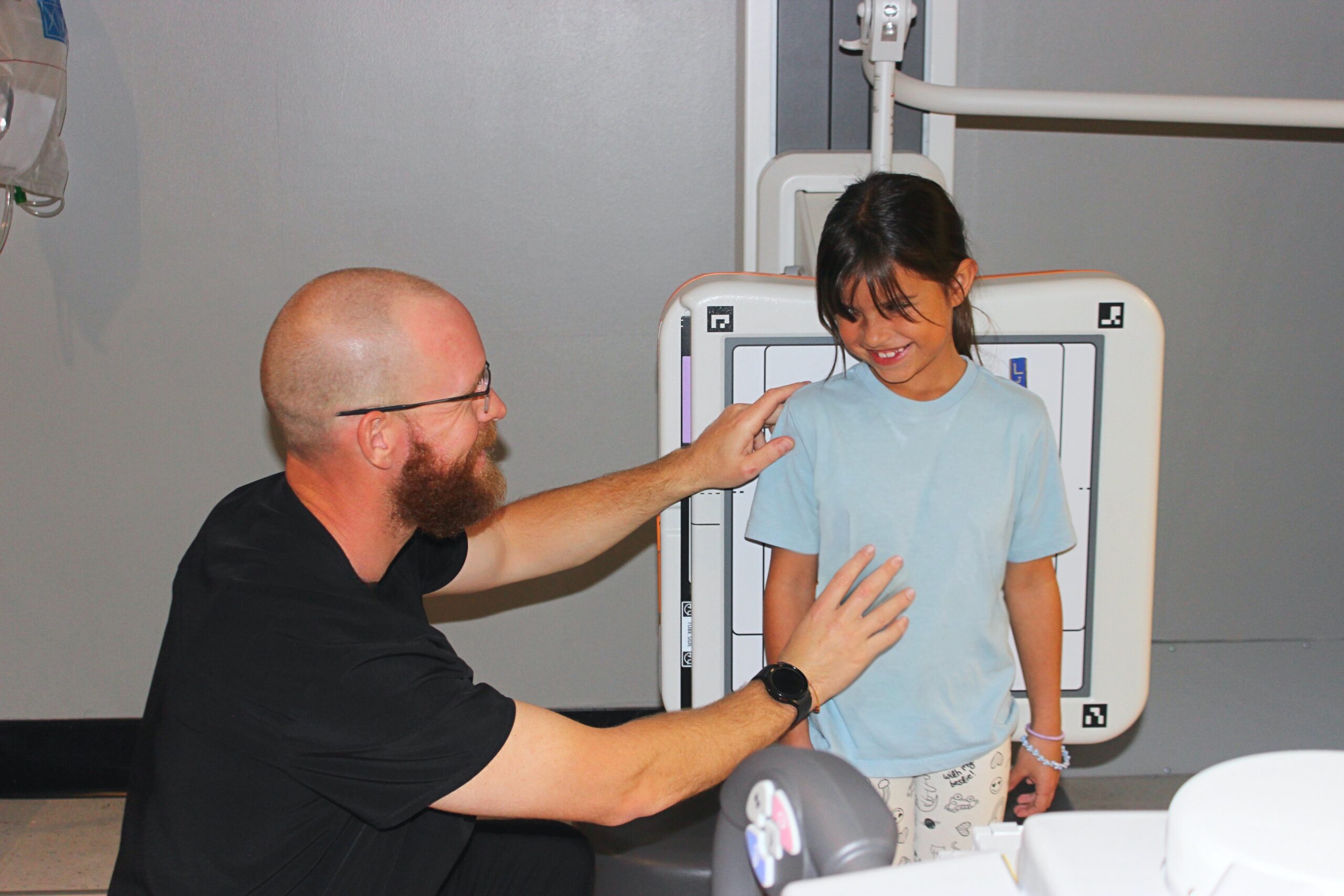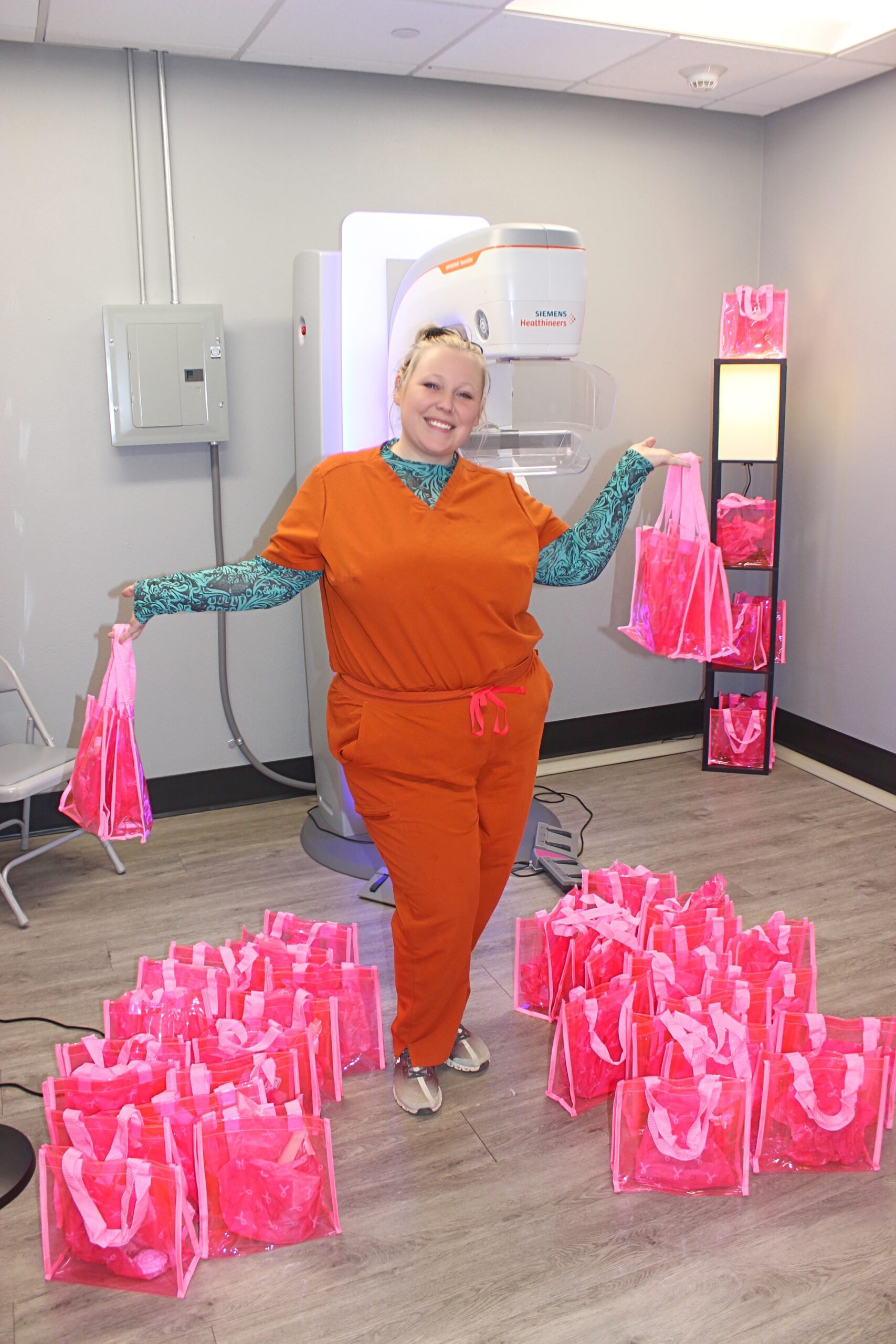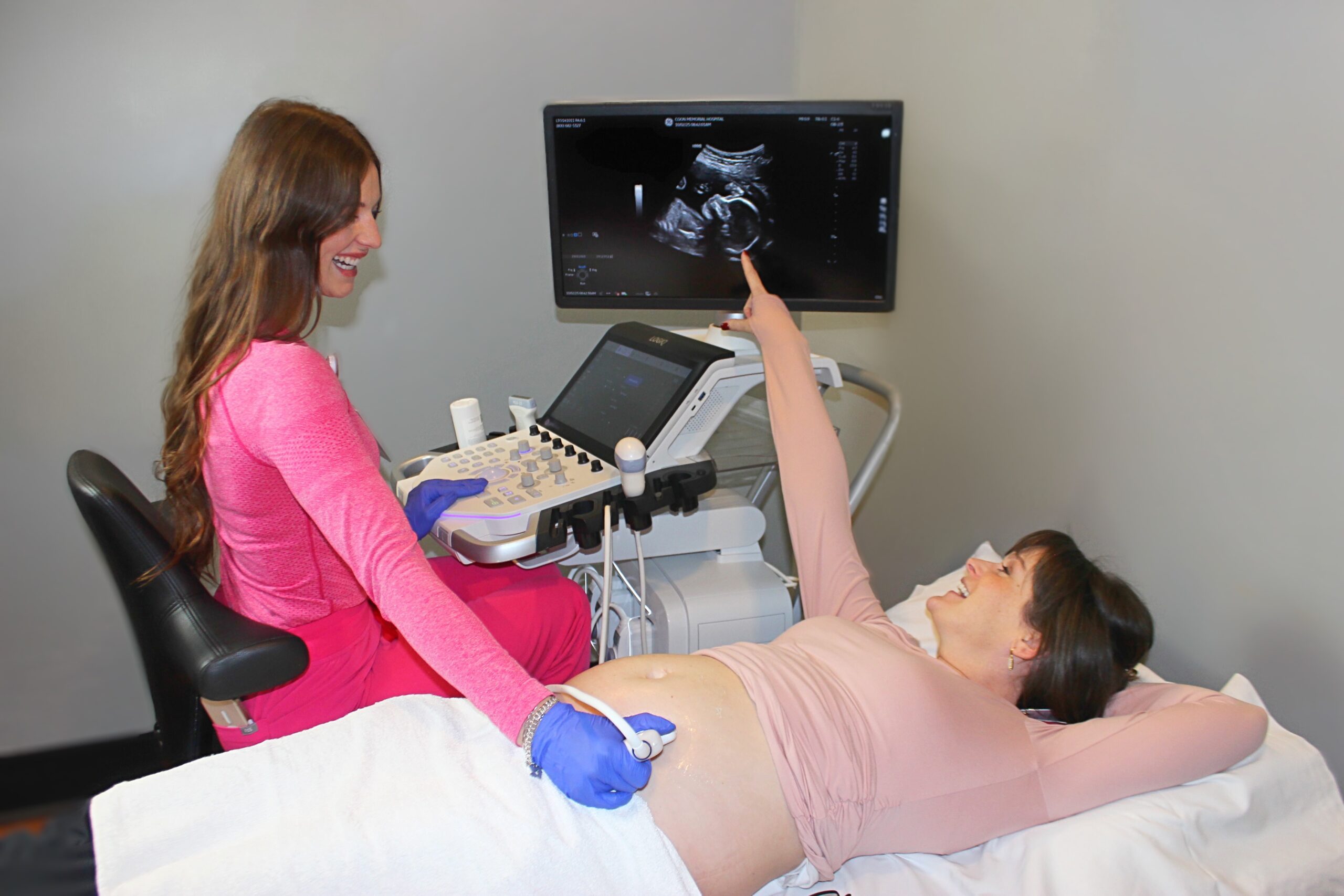Services: Outpatient Care
Radiology
HOME / SERVICES / OUTPATIENT CARE / RADIOLOGY
A Look Inside for Better Health
Knowing what’s happening inside the human body is an important part of modern medicine. At DHCHD, we offer a variety of imaging services to help with diagnosis and treatment.
Our advanced imaging services include:
- CT scans
- X-ray
- Ultrasound
- Echo Ultrasound
- Pediatric Echo Ultrasound
- MRI
- Bone density scan
- Nuclear medicine & stress testing
- 3 -D Mammograms
These services are available on an outpatient basis, and CT and X-ray imaging is accessible 24 hours a day, 7 days a week for your convenience.
Radiology services are located right inside of the ER/Admissions door at the corner of East 16th Street and Denver Ave. To contact the radiology department, please call 806.244.4571.
Nuclear Medicine
What is nuclear medicine?
Nuclear Medicine is a safe, painless, and cost effective tool used to help physicians diagnose and treat diseased or abnormal organs.
What happens during a nuclear medicine scan?
Radiopharmaceuticals are introduced into the body by injection, ingestion, or inhalation and are taken up by the target organ. The gamma camera detects the radiation emitted by the radiopharmaceutical in the body and turns it into a picture on a computer screen. Information such as organ function and structure can be assessed from this picture.
What happens after a nuclear medicine scan?
The small amount of radioactivity left in the body after a nuclear medicine procedure will decay or lose its radioactivity over time naturally. Most radiopharmaceuticals leave the body through the urine within 2-3 days. In almost all cases, after a nuclear medicine scan, a patient can return to their normal daily routine.
How is nuclear medicine different from x-ray, CT, ultrasound, and MRI?
During a nuclear medicine scan, the radiation coming a patient’s body is detected and turned into a picture for the radiologist to read. All of these other procedures use machines that send radiation through the body to see certain organs and tissue. Nuclear medicine can also detect disease based on organ function.
Nuclear Medicine Procedures:
- Thyroid Imagine Study
- Thyroid Uptake Measurement
- Parathyroid Study
- Liver/Spleen Study
- Hepatobiliary Study
- Gastric Emptying Study
- Gastrointestinal Bleeding Study
- Bone Imaging
- Bone Spect
- Three Phase Bone Scan
- Myocardial Perfusion Study
- Gated Blood Pool Study-Rest
- Lung Perfusion Study
- Renal Study
Stress Testing
A stress test, also called an exercise stress test, shows how your heart works during physical activity. Because exercise makes your heart pump harder and faster, an exercise stress test can reveal problems with blood flow within your heart.
A stress test can help:
- Guide treatment decisions
- Determine how well heart treatment is working
- Diagnose the severity of an existing heart condition
Why it’s done:
- Diagnose coronary artery disease
- Diagnose heart rhythm problems
- Guide treatment of heart disorders
- Check your heart before surgery
"THE DALLAM-HARTLEY COUNTIES HOSPITAL DISTRICT PROPOSED A TAX RATE THAT WILL RAISE MORE TAXES FOR MAINTENANCE AND OPERATIONS THAN LAST YEAR'S TAX RATE."
"THE TAX RATE PROPOSED WILL EFFECTIVELY BE RAISED BY 7.9 PERCENT AND WILL RAISE TAXES FOR MAINTENANCE AND OPERATIONS ON A $100,000 HOME BY APPROXIMATELY $14.69”
TO VIEW THE HOSPITAL NOTICE OF PUBLIC HEARING ON TAX INCREASE: Click Here
2024 CERTIFICATION OF TAX RATE: Click Here
2024 PROPOSED TAX RATE BOARD APPROVAL: Click Here
A long-term care ombudsman helps residents of a nursing facility and residents of an assisted living facility resolve complaints. Help provided by an ombudsman is confidential and free of charge. To speak with an ombudsman, a person may call the toll-free number 1-800-252-2412.
Sec. 181.105. REQUIRED INFORMATION REGARDING CONSUMER ACCESS TO HEALTH RECORDS AND COMPLAINTS. (a) Except as provided by Subsection (b), a covered entity shall prominently post on the entity's Internet website and at any entity facility detailed instructions for a consumer to:
(1) request the consumer's health care records from the entity;
(2) contact the disciplinary or licensing authority for the covered entity; and
(3) file a consumer complaint as described by Section 181.103.
(b) This section does not apply to a covered entity that conducts claims processing, data processing, data analysis, utilization review, or billing on behalf of another covered entity that provides health care services directly to consumers.
Added by Acts 2025, 89th Leg., R.S., Ch. 650 (H.B. 4224), Sec. 1, eff. September 1, 2025.



